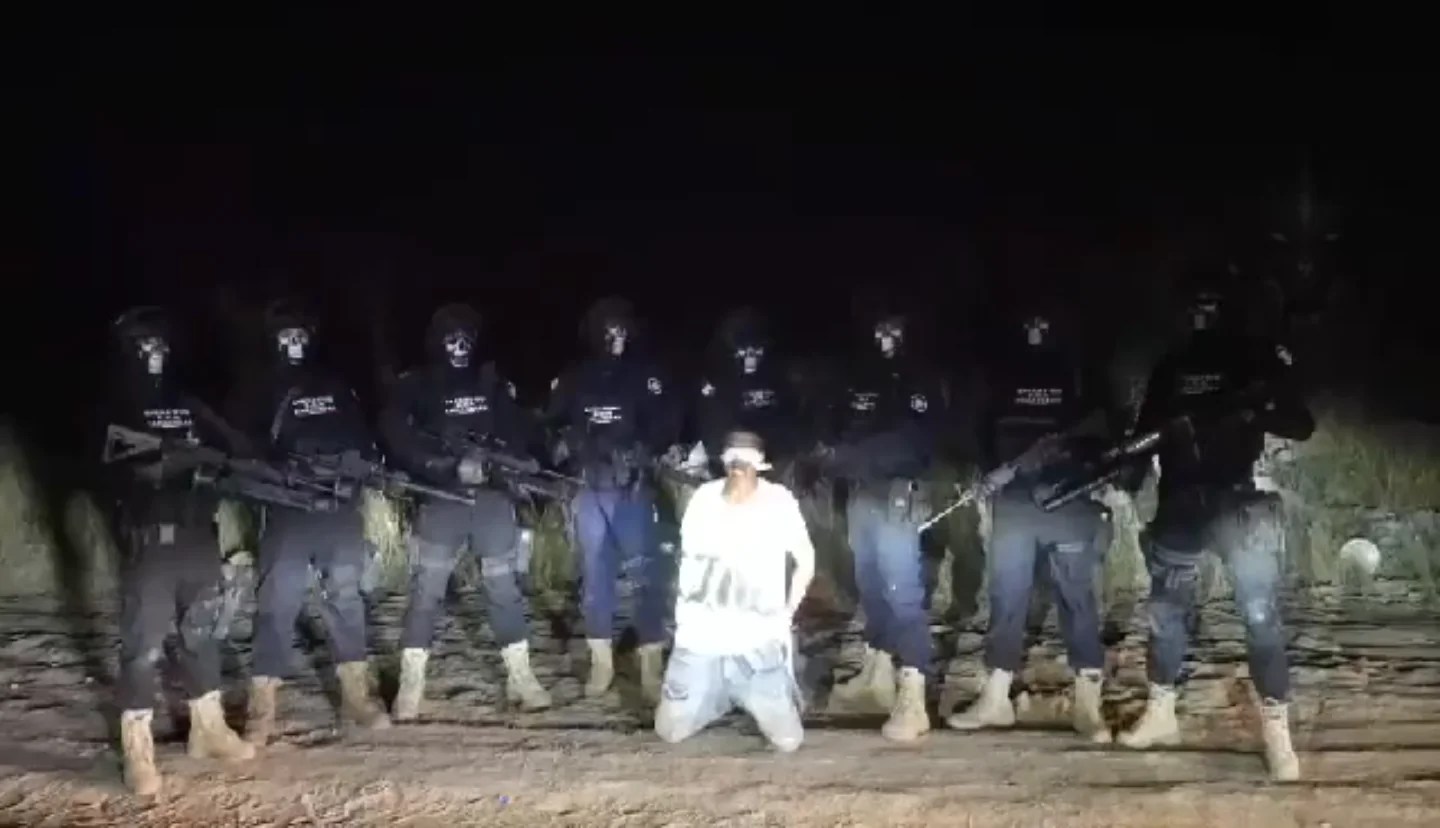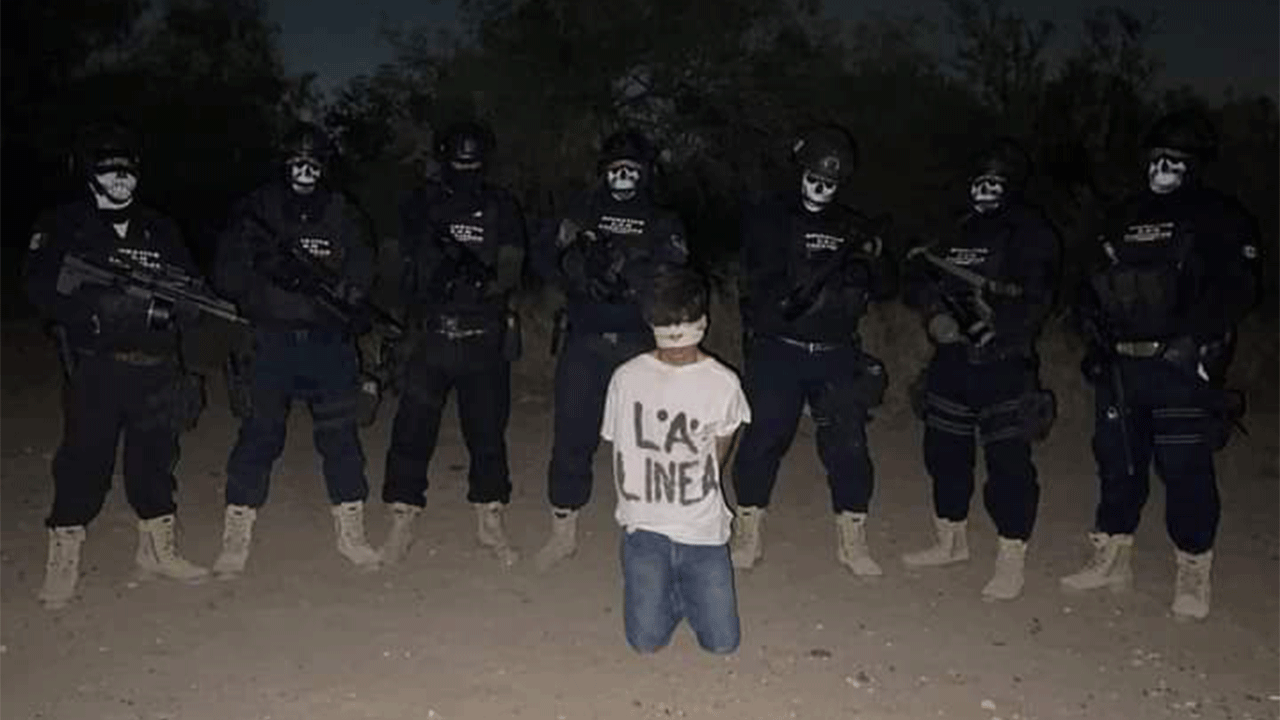Zacatecas flaying is an ancient practice that continues to intrigue historians and cultural enthusiasts alike. Nestled in the heart of Mexico, Zacatecas is not only known for its stunning landscapes and rich cultural heritage but also for this gruesome form of punishment that dates back to colonial times. This ritual has left its mark on the region, serving as a reminder of the darker aspects of human history. From its origins to its modern-day implications, the story of Zacatecas flaying weaves a complex narrative filled with pain, power, and the struggle for justice.
As we delve deeper into the topic, we will explore the various facets of Zacatecas flaying, including the historical context that led to its prevalence, its significance within the community, and the ethical implications surrounding such a brutal practice. This article aims to shed light on the historical accounts and cultural resonance of Zacatecas flaying, ultimately providing a comprehensive understanding of its impact on society.
Join us on this journey as we uncover the layers of history intertwined with Zacatecas flaying. By examining the motivations behind this practice, the societal attitudes that supported it, and the perspectives of those who experienced it firsthand, we can gain valuable insights into the complexities of human behavior and the historical narrative of Zacatecas.
Read also:Is Guy Fieri A Democrat Understanding The Political Views Of The Popular Chef
What is the Historical Background of Zacatecas Flaying?
The history of Zacatecas flaying is deeply rooted in the region's past, dating back to the Spanish colonial period. Flaying, the act of stripping the skin from the body, was often used as a form of punishment for severe crimes, particularly those involving treason or rebellion against the colonial authorities. This brutal method was intended to instill fear among the populace and deter potential offenders.
During the colonial era, Zacatecas was a significant mining hub, attracting a diverse population of indigenous peoples, Spanish colonizers, and African slaves. The combination of these cultures created a complex social dynamic, where power struggles and resistance to oppression were common. The practice of flaying served as a means for the authorities to maintain control over the population, often targeting those who dared to challenge the status quo.
How Was Zacatecas Flaying Conducted?
The process of flaying was a gruesome spectacle, often carried out in public to serve as a warning to others. Victims were typically tied to a post or other structure, and the act of skinning was performed with precision and brutality. The method varied depending on the skill of the executioner and the specific circumstances surrounding the crime.
Some accounts suggest that flaying could be a slow and torturous process, lasting hours or even days. This was not only a punishment but also a form of entertainment for the spectators, who gathered to witness the grisly event. The public nature of the act was intended to maximize its psychological impact, reinforcing the power of the colonial authorities and instilling fear in the hearts of the community.
What Were the Societal Implications of Zacatecas Flaying?
The societal implications of Zacatecas flaying were profound. While it served as a tool for maintaining order and control, it also highlighted the deep-rooted injustices present within the colonial system. Many indigenous peoples and marginalized groups were disproportionately affected by these brutal punishments, further perpetuating cycles of violence and oppression.
As awareness of these injustices grew, so did resistance against the colonial authorities. Flaying became a symbol of the struggle for justice, with many viewing it as a representation of the violence inflicted upon the oppressed. Over time, the practice fell out of favor as societal attitudes shifted, and the call for reform and human rights gained traction.
Read also:Judge Jeanines Husband A Comprehensive Look Into Their Relationship
Who Were the Victims of Zacatecas Flaying?
The victims of Zacatecas flaying were often individuals who defied the colonial authorities or engaged in acts of rebellion. This included indigenous leaders, political dissidents, and anyone deemed a threat to the established order. The selection of victims was often arbitrary, driven by the desire to instill fear rather than justice.
In many cases, innocent individuals were caught in the crossfire, accused of crimes they did not commit. This highlights the arbitrary nature of justice during this period, where the line between guilt and innocence was often blurred by the prevailing power dynamics. The legacy of these victims continues to resonate in contemporary discussions about justice and human rights.
What Can We Learn from the History of Zacatecas Flaying?
The history of Zacatecas flaying serves as a poignant reminder of the capacity for cruelty within human society. It challenges us to confront the darker aspects of history, urging us to reflect on the consequences of power, oppression, and the struggle for justice. By studying such practices, we can better understand the importance of human rights and the need for compassion in our contemporary world.
Furthermore, the story of Zacatecas flaying encourages us to examine our own societal structures and the ways in which power can be wielded against marginalized groups. It serves as a call to action, urging us to advocate for justice and equality in our own communities.
How Does Zacatecas Flaying Influence Modern Culture?
Today, the legacy of Zacatecas flaying can be seen in various aspects of modern culture, from literature and art to discussions about justice and human rights. The historical narrative surrounding this practice has inspired artists and writers to explore themes of violence, power, and resistance.
Moreover, the cultural memory of Zacatecas flaying serves as a reminder of the importance of preserving history, ensuring that the stories of victims are not forgotten. By acknowledging the past, we can foster a deeper understanding of the complexities of human behavior and the ongoing struggle for justice in society.
What Are the Contemporary Perspectives on Zacatecas Flaying?
In contemporary discussions, Zacatecas flaying is often viewed through the lens of human rights and social justice. The brutality of this practice raises important questions about the ethics of punishment and the treatment of marginalized groups within society. Scholars and activists continue to explore the historical context of flaying, seeking to understand its implications for modern justice systems.
Furthermore, the legacy of Zacatecas flaying has prompted initiatives aimed at raising awareness about human rights abuses and promoting restorative justice. By learning from the past, contemporary society can work towards creating a more equitable and just world.
Conclusion: Reflecting on the Legacy of Zacatecas Flaying
The story of Zacatecas flaying is one of pain, power, and the struggle for justice. As we reflect on this dark chapter in history, it is essential to acknowledge the experiences of the victims and the societal implications of such brutal practices. By understanding the past, we can better navigate the complexities of contemporary society and advocate for a future rooted in compassion and equality.
As we continue to explore the legacy of Zacatecas flaying, let us remain committed to fostering a culture of understanding and justice, ensuring that the lessons of history inform our actions in the present and future.


